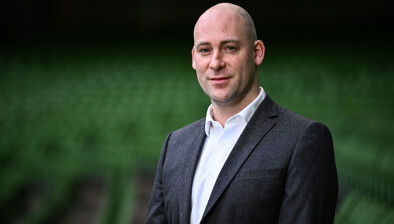High Court: €350,000 awarded to woman who was sexually abused by her father and uncle as a child

The High Court has awarded €350,000 in favour of a woman who was sexually abused by her father and raped by her uncle as a child. The abuse lasted at least eight years and began when she was seven years old.

About this case:
- Citation:[2022] IEHC 376
- Judgment:
- Court:High Court
- Judge:Mr Justice Garrett Simons
Delivering judgment in the case, Mr Justice Garrett Simons considered the jurisprudence relating to compensation for child sexual abuse claims, including M.N. v. S.M. (Damages) [2005] IESC 17. It was held that the award was proportionate given the duration and nature of the sexual abuse which resulted in a complex post-traumatic stress disorder.
It was also noted that the plaintiff had previously settled her claim with the Health Service Executive and that the total award might need be reduced accordingly.
Background
In 2012, the plaintiff issued personal injuries proceedings against her father, her uncle and the HSE. The plaintiff’s claim was for psychological damage caused by the repeated sexual abuse which she suffered at the hands of her father and uncle as a child. Further, it was claimed that the HSE was liable for failing to take adequate steps after she disclosed the abuse to doctors in 2004.
From the age of seven, the woman (known as AB) was sexually assaulted by her father, which included groping, inappropriate touching and digital penetration. The abuse lasted at least eight years and occurred regularly. The abuse was minimised by the father, who said that he was “preparing” the plaintiff for the real world.
When she was 13, she was raped by her uncle. This abuse lasted for about two years. The abuse stopped in 2004 after she reported the offending to her mother. Again, the uncle minimised his actions, stating that he was giving her “experience for the fellas in the future”.
The abuse had a traumatic effect on the plaintiff’s life, and she began to self-harm. She was admitted to hospital on 50 occasions between 2004 and 2007 for deliberate overdosing and suicide attempts. Part of the plaintiff’s issues related to family members putting sustained pressure on her to keep the allegations quiet.
The plaintiff also suffered from eating disorders, gynaecological issues and severe insomnia. She needed to constantly keep busy to avoid intrusive thoughts. The medical evidence was that the plaintiff was suffering from a complex post-traumatic stress disorder and possibly emotionally unstable personality disorder.
Further, the medical expert opined that the decisions by healthcare professionals to return the plaintiff home despite being aware of the sexual abuse allegations added significantly to her trauma.
The father and uncle were convicted for sexual offences, with the father receiving a two-year sentence and the uncle receiving a nine-year sentence.
Neither the father nor uncle contested the personal injuries proceedings, although it was submitted that they did not have the means to pay the plaintiff significant damages.
High Court
Mr Justice Simons began by noting that the new personal injuries guidelines were not applicable to the present case because the proceedings were initiated before April 2021. Further, the book of quantum was not useful because it did not make provision for psychological damage. Accordingly, damages were to be assessed by reference to the case law.
Considering M.N. v. S.M, it was noted that the plaintiff received €350,000 for abuse which lasted for five years and culminated in rape. Important factors identified in M.N. v. S.M. included the age of the child, the continuum of offending and the lifelong consequences for the injured party.
The court also considered case law which emphasised that it was necessary for any award of damages for child sexual abuse to be proportionate (Hickey v. McGowan [2017] IESC 6). A court was required to award damages which were fair to a plaintiff, to a defendant and proportionate to the prevailing social conditions of the time (M.N v. S.M.).
Applying the law to the facts of the case, the court noted that the plaintiff had developed coping mechanisms for her psychological injuries and mental health, but that she was continuing to suffer with ongoing symptoms. Additionally, there was also a “grave breach of trust” in this case arising from the plaintiff being abused by those who were supposed to keep her safe.
As such, the court assessed general damages to date at €275,000 and general damages into the future at €75,000. It was held that the total award of €350,000 was proportionate to other recent awards for similar injuries (see Hickey v. McGowan; Walsh v. Byrne [2015] IEHC 414).
Further, the court held that it would not apply aggravated damages or exemplary damages for the defendants’ actions, because the purpose of the award was to compensate the plaintiff for the injuries caused by the defendants. In other words, “damages should be assessed by reference to the psychological injury caused by the aggravating factor”.
Finally, the court noted that the HSE had previously settled the claim against the plaintiff for €130,000. Since the claim against the HSE was that it was partly responsible for the psychological injury, it was “at least arguable” that the HSE was a concurrent wrongdoer in the case.
As such, the overall figure of €350,000 may need to be reduced to account for the settlement. The court invited the parties to make submissions on the issue as to whether the HSE was a concurrent wrongdoer responsible for the “same damage” as required by the Civil Liability Act 1961.
Conclusion
The court awarded €350,000 to the plaintiff and requested submissions on whether the HSE was a concurrent wrongdoer in the proceedings.
AB v. Health Service Executive and Ors. [2022] IEHC 376











